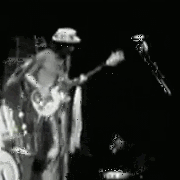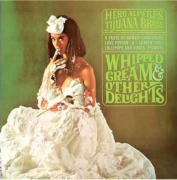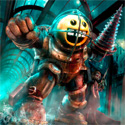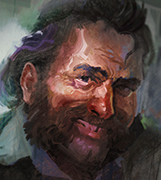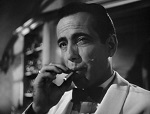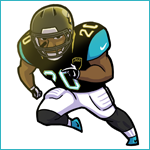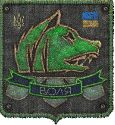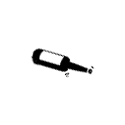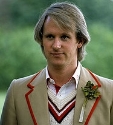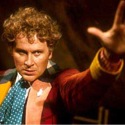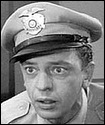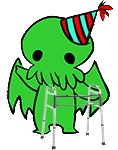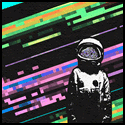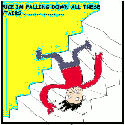|
The House of Mirth (Edith Wharton): If I had been forced to read this in school, I would have hated it (except for the end, because I was that type of kid). I hated books that I just couldn't pick up and enjoy, one that had to be explained to me when my English teachers generally weren't very good at doing that. Since then, I've gotten a good bit more familiar with the era and early 1900s high society fascinates me. The decline of Lily Bart, in all its various forms, is interesting, but that Wharton doesn't make her much of a sympathetic figure makes it better. The book has some dry sections, but more than makes up for it when the action picks up (especially the blowups with Trenor and the Dorsets).
|
|
|
|

|
| # ? May 15, 2024 13:54 |
|
The Sugar Frosted Nutsack by Mark Leyner. I have always been a big fan of Leyner's since My Cousin, My Gastroenterologist so I was very happy to see he finally came back to writing fiction after a long stint of editing medical-factoid paperbacks. That said: not everyone is going to enjoy this book mainly due to the frustrating way in which it is written. Its conceit makes it read like a really dry academic critique/exploration into a fictional epic poem (the titular Sugar Frosted Nutsack). Or it could be that the critiques are actually part of the poem since the epic itself is endlessly recursive, subsuming everything written about it into itself. The recursion also means that certain parts, concepts and lines are looped over again throughout the text. If you find your self thinking, "Didn't I read this line before?" The answer is always Yes. (if you didn't read the line before please keep it to yourself otherwise you may inadvertently alter the canon.) The epic poem is about Ike Karton, an unemployed Jersey City butcher and favorite of (some of) the Gods. He was hit by an ice cream truck during spring break and has the Mister Softee jingle permanently playing in his mind as a result. His epic adventures include flirting with a waitress at the local diner and sitting out on the curb getting high with his daughter's boyfriend. All of which culminates in his death at the hands of a Mossad sniper*. Or so we think, since on top of all the recursion one of the gods is actively contorting space-time to alter and edit the epic since he's miffed about the withering critique of his own poem. If you can manage not to think too hard about the story you ought to find it amusing. *This is not a spoiler. Ike is actively aware of his fate from the moment he is introduced for he has also read the epic poem about his adventures. rich thick and creamy fucked around with this message at 21:35 on May 15, 2012 |
|
|
|
Finished up a book I bought last year called Torment, by Jeremy Robinson. It's an odd take on the zombie apocalypse idea. It's a unique read though. Not spectacularly awesome, but a little too heavy handed at the same time. I'd rate it a solid 3 stars, maybe 3.5 out of 5. It starts out with the president and some people escaping from a nuclear war caused by russia, and we retaliate and basically blow up the planet. A few people survive on Orion style nuclear powered escape pods, and then well.. it opens awesomely. After that it kinda sorta fizzles a bit and loses some of that Note, these are not your average zombie. No shambling dead guys to be found. If ya dig zombie books, give it a shot.
|
|
|
|
I just finished Professor Moriarty: The Hound of the D'Urbervilles,It's basically Sherlock Holmes but with Moriarty instead of Holmes and Colonel Moran in stead of Doctor Watson, but it's still pretty good. I really liked the little shout-outs to other literary works, there's an entire chapter that's basically War of the Worlds, and interestingly enough, Bianca Castafiore from Tintin plays a pivotal part in a case. It came kinda unexpected but it's still pretty cool. I'd give it a 4 out of 5 primarily cause some of the characterisation was pretty shoddy.
|
|
|
|
Old Goriot by Balzac. I love reading 19th century literature because it seems to be able to critique all the problems of modern society in a time when they were blooming so quickly. I thought that maybe this one would be too old to be relevant today, but it was just as compelling as any book I've read in the past couple of years. Greed, love, villains (one of my favorites of all time, honestly), a duel, multiple poisonings-- it's all here, all taking place within a quaint boarding house in Paris, intricately detailed by Balzac down to the greasy plates lining the walls. Vautrin's speech reminded me so much of Ivan's in The Brothers Karamazov, not in content obviously, but the way each respective author is able to convey a position that they probably found difficult to defend (from what I've read, anyway), in such a convincing fashion that I after reading it leaves me feeling uneasy, as though my core beliefs are shaken and questioned, leaving me almost nauseous...
|
|
|
|
The Spy Who Came in from the Cold (John le Carre): This never kicked into high gear for me. With the exception of the big one, I guessed most of the plot twists, and even the big twist didn't make me gasp. I had never attempted le Carre, or probably really even a spy novel, so it might go into the category of Just Not My Thing.
|
|
|
|
I finished The Irish Americans: A History by Jay P. Dolan last night. The author is a former professor of history at Notre Dame. The books was quite interesting, and it mainly focused on the Irish involvement in politics, religion, and their integration into America. A little dry at times, as it read a little like a college course, but it's got a lot of interesting information in it.
|
|
|
|
The Great American Crime Decline by Frank Zimring. Background: crime in the USA peaked in the early 90s, and then went on an unprecedented decline over the next ten years. Here, I made a graph: The thesis of this book is that we don't know why this happened. The subthesis is that everybody who claims they know is wrong. The whole book is essentially an exercise in causal modeling and why it's so hard. The author takes every potential explanation and shows how each one is deficient using a variety of counterexamples — eg the vast increase in incarceration rates through the 90s fails to explain how Canada, which didn't have a similar increase, nevertheless had a crime decrease that mirrored the USA's. Changes in police practices in one city fails to explain how other comparable cities had similar decreases in crime rates. And so on. As someone who has dipped his toes into the causal modeling pool, this book was a powerful reminder that it is incredibly easy to generate explanations, but even more incredibly difficult to verify these explanations.
|
|
|
dokmo posted:The Great American Crime Decline by Frank Zimring. Background: crime in the USA peaked in the early 90s, and then went on an unprecedented decline over the next ten years. Here, I made a graph: Does it examine the abortion hypothesis? What does it say?
|
|
|
|
|
The book spends half a chapter talking about the abortion hypothesis. The author shows that abortion legalization had no effect on the number of live births (and the fertitlity levels of "at risk" parents actually increased following Roe Vs Wade), so the prima facie case for abortion is weakened considerably.quote:... it is important to distinguish between two different propositions when considering the impact of this proximal circumstantial evidence. On the one hand, none of this data shows that access to abortion failed to reduce births or various kinds of births thought to generate higher risks of crime. This cannot be established, because there is no clear indication of what levels of various kinds of births would have occurred if the law hadn't changed. That is the "counter-factual condition" that can only be debated with several layers of circumstantial evidence. So we cannot make definite statements, vide Donohue and Levitt, about whether crime rates during the 1990s might have been higher than they were if abortion policies had not changed. There's a lot more (for example, other countries that legalized abortion had no similar crime declines). It was very persuasive to me.
|
|
|
|
dokmo posted:The book spends half a chapter talking about the abortion hypothesis. The author shows that abortion legalization had no effect on the number of live births (and the fertitlity levels of "at risk" parents actually increased following Roe Vs Wade), so the prima facie case for abortion is weakened considerably. Anything for the phase out of lead in gas/paint/etc?
|
|
|
|
The Way of Kings by Brandon Sanderson. Holy poo poo this book was good. Also, like Elantris, Sanderson drops a huge plot twist in the last 20 pages. The only thing I didn't like about this book is that the second one isn't out yet.
|
|
|
|
Just finished the nonfiction book The Lost City of Z: A Tale of Deadly Obsession in the Amazon, by David Grann. Very well-researched and compiled, it definitely sparked my imagination; I may have to visit the Amazon someday now.
|
|
|
|
Just finished Albert of Adelaide by Howard Anderson. It's a talking animals book, but considerably more adult (and violent) than the usual; certainly not one for the kiddies. A platypus escapes from an australian zoo and flees north in search of 'Old Australia'. He finds an 'wild-west' outback full of hardship, prejudice and violence, but also friendship and loyalty. Some of it's darkly humourous and I found some parts genuinely moving. The cover says 'True Grit meets Watership Down', which I can't really judge since I haven't read either but seems about right. Highly recommended if you aren't turned off by gun-toting marsupials (and monotremes). http://www.amazon.com/Albert-Adelaide-Novel-Howard-Anderson/dp/1455509620
|
|
|
|
I just finished The Rules of Attraction by Bret Easton Ellis. I'm not sure what I just read- the constant perspective switching made it a little hard to follow- but I'm pretty sure it changed my life. Now on to Less than Zero.
|
|
|
|
|
A Game of Thrones Simply put, one of the funniest books I've ever read. Reminds me a lot of The Evil Dead films, in which it takes horrible situations, but instead of keeping them within realistic proportions with the intent to horrify, it continues to crank them up to the point where they go well beyond being absurd. And the gratuitous scenes of sex and nudity just send it further into parody.
|
|
|
|
A Confederacy of Dunces by John Kennedy Toole. I am convinced that Ignatius is the Patron Saint of all goons: an overweight manchild who bitches and
|
|
|
|
WickedIcon posted:Now on to Less than Zero. Prepare to feel very, very depressed. Just finished Empire in Black and Gold by Adrian Tchaikovsky. The use of the insect/bug type people was pretty imaginative but overall I found it way too formulaic to really enjoy; there was no sense of real danger to any of the characters, and even the supposed morally grey characters were pretty transparent in their actions. Don't think I'll be reading the rest of the series.
|
|
|
|
Just got done reading "I Suck at Girls." Same guy who wrote "Sh-- My Dad Says." I tried to like it at first, but I just couldn't. I think it's because it seemed like someone trying too hard to be funny. And the bad part about it was, it was supposed to be nonfiction. But I find it hard to believe that someone could remember exact conversations 20 years after the fact, and especially since all of the conversations are so "witty" and "hilarious." The dad is on the periphery for most of the book, but somehow shows up to expound upon the situation in increasingly absurd ways. After I finished the book I got online to read some reviews and a lot of them shared the view that a lot of the material seemed made up. I got it from the library, so I'm glad I didn't waste 10 bucks pre-ordering it for my Kindle.
|
|
|
|
I just finished The Dark Paradise: The Discovery of the Deep Sea by Antje and Henning Boetius, a book about deep sea research. I'm still a bit disgruntled about the book. It was full of stuff about mythology and the repercussions of harvesting ressources from the deep. From the description of the book, I thought it would concentrate more on the actual life of the deep sea and was pretty disappointed. Not that it isn't an objectively interesting read, especially if you know nothing about the ocean, the deep sea and sea mythology. I, on the other hand, either wasn't interested or already knew what the book wanted to tell me, so I grew really bored sometimes. It has some (not many, though) nice colour pictures of deep sea animals and a good chapter about the daily work and life on board a deep sea research vessel. A genuine surprise for me was the fact that Germany has a licence for harvesting deep sea ressources in the Pacific Ocean, even if it has only been used for research purposes until now. (Before you get excited and try finding it, I should add I translated the title myself, as far as I know there is no english language edition of the book. But maybe I'm wrong and you get lucky.)
|
|
|
|
I just (sort of) finished The Mirage by Matt Ruff. What started out as a promising book slowly spiraled in to a retarded "plot twist" that I found to be none to enjoyable, and in my opinion, ruined the book. The writing was also a little heavy handed, doing a lot of HEY DID YOU GUYS SEE WHAT I DID HERE??? type of writing. It was a good idea but poor execution.
|
|
|
|
Just finished Blood Meridian by Cormac McCarthy. It starts kind of slow, and if you have not read Cormac McCarthy before (as I had not) you will find the writing style somewhat, odd. But it quickly grew on me and I really felt that it really fit the book as the protagonist and sort of narrator is some 15-16 year old kid who's grown up with violence and seems somewhat indifferent to most things. After a while the book becomes one of the most relentless assaults of appaling violence I have ever encountered, and it's all described so matter of factly and the book seems to try to show you how violence seldom has or needs a reason to be, it just is. I won't spoil anything but at the end it became really hard to put the thing down and I was sort of despairing in the fact that I know something horrible and senseless and at the same time meaningful thing was about to happen. Or something like that, recommended, but then it is a very well known book. And I hope to God no one ever manages to make a faithful movie out of it.
|
|
|
|
Johannes Cabal the Necromancer by Jonathan L. Howard I have had it laying around for a while now and I was digging around for something different than the smattering of sci-fi books I have been reading. I enjoyed it and thought it was pretty drat funny if not overly predictable.
|
|
|
|
Teaches of Peaches posted:Johannes Cabal the Necromancer by Jonathan L. Howard I am on the third one in this series and if you hadn't planned on it, read the next two, predictable yes, but still awesome.
|
|
|
|
Just read Breakfast of Champions by Kurt Vonnegut. It was hilarious, and a super good eye-opener in terms of what a writer can get away with. Vonnegut was a genius. The storytelling method was so refreshing, and the content was so American satire that it just hit all points. Nice quick read.
|
|
|
|
I just finished Feet of Clay, the 3rd City Watch book of the Discworld series. It was an absolute joy to read, from beginning to end. A really heartwarming story, and the characters and humour are better than ever. Probably my favourite Discworld book I've read so far. I gotta read some non-Watch books next so I don't go through the Watch ones too fast.
|
|
|
|
EXISTENTIALISM IS A HUMANISM BY JEAN-PAUL SARTRE A transcript of a lecture Sartre gave in an attempt to clear up some of the misinterpretation people had formed when discussing his theories on existentialism. It's a good start to the basics of his philosophies because he is trying to clarify things in a simple and direct way - even if a little bit of it is muddled by the fact that he's trying to appease the Communist members in attendance. The Q & A session included at the end of a book is a hoot considering how bloody long one of the questions is and the quickness Sartre shuts him down. Good for people wanting to know what the man was about without being too dense.
Pineapple Skeleton fucked around with this message at 06:21 on May 25, 2012 |
|
|
|
Just finished A Canticle for Leibowitz and The Magus. The Magus was a pretty engrossing read but ultimately unsatisfying, which I guess is kind of the point. Canticle was also a great read, and left me deeply thankful the spectre of a nuclear holocaust occurring is at least much less likely nowadays, if not completely unthinkable. Just started American Psycho, which I've been meaning to get around to for years.
|
|
|
|
I finished Tomorrow, When the War Began before going to be last night. It's the first in an Australian YA series about an unnamed sort-of fictional country (according to the Internet, the information about the country mentioned in the books doesn't exactly match any existing country, but most closely matches Indonesia) invading Australia, and the group of about six or eight teenagers from the town of Wirrawee who, camping in an isolated valley when the invasion began and so avoiding being captured like the rest of their town, form a guerrilla resistance group. Sort of like an Australian Red Dawn, I guess, although the book focused more on setting up their camp and figuring out what they're doing and smaller resistance actions like sabotaging bridges and so on than Red Dawn's "just loving slaughter all the Spetznaz dudes Regardless of those, the characters were realistic (probably the most realistic teenagers I've read in a YA series), the action scenes were intense adrenaline-rushes, Ellie is a very likable protagonist, and I'm incredibly intrigued to continue the series to the point that I bought the second before even finishing the first. edit: Jesus, that's a lot of words. I really like this book, I got excited, sorry
|
|
|
|
I just finished Red Seas Under Red Skies. It was a fun read, and pretty different from the book that preceded it, The Lies of Locke Lamora. There's a shift in focus midway through the book that I found a little jarring at first, but it ended up being pretty fun anyway. It opens with a scene that had me worried the entire book, and I'm not sure if I like how that scene ended up being resolved. Still, a good book overall, and I'm looking forward to the next book.
|
|
|
|
Dragon Champion by E.E. Knight Good book focusing on the life of a grey scaleless dragon. Definitely going to try and find the other two in the series.
|
|
|
|
Just finished David Copperfield, which I've been meaning to read ever since I grew up and found out it was more than a lovely animated NBC Christmas special. There's no cheese factory and no one is a furry. I loved this book, even the tedious parts. I was so attached to these characters that I wanted to hear all about their Britannia-metal teaspoons and swooning fits.
|
|
|
|
I just finished Endurance: Shackelton's Incredible Voyage. One of the greatest adventure stories of the 20th Century, in my opinion.
|
|
|
|
Finished Fear and Loathing in Las Vegas and it was pretty entertaining. Never read any Hunter S. Thompson before; somehow avoided seeing the movie adaptation at any point despite it seeming that most folks I know have seen it. I did sort of feel its novel-length didn't help it much, though it was still pretty short. Kind of interested in picking up a volume of Thompson's essays and journalism now.
|
|
|
|
Just finished a couple of books, The Immortal Life of Henrietta Lacks and a YA book that I'd been searching for on the Internet for about 6-7 years, The Secret Life of Dilly McBean. The Immortal Life I had started reading in a bookstore and never got around to buying, but it was a great read into the ethics that have changed in scientific research since the mid 1950s and the effect that it had on one family due to the mother being the genesis for the famous HeLa cell line. Great read. The other is a book I loved when I was in middle school and focuses on a rich orphan boy with magnetic hands who is thrust into a new school every year. A really good read for the middle school set.
|
|
|
|
Falls Down Stairs posted:Kind of interested in picking up a volume of Thompson's essays and journalism now. Obvious next step is F&L on the Campaign Trail 72 then, as it's his second masterpiece. It's a lot longer, and a lot more genuinely sloppy (parts of it are just spoken down the phone and transcribed), but he's still young, with enough credit to get cocaine and red convertibles on expenses, and enough brain to actually focus on the event. Speaking of, I finished a book of his letters Fear & Loathing in America which is honestly 50% haggling between him and Jan Wenner of Rolling Stone Magazine, but was interesting as a history purely because he had an interesting life. It also had 2 or 3 beautiful bits of writing hidden in there, though that wasn't the focus. Also finished Anglo Saxon Attitudes by Angus Wilson and Eyeless in Gaza by Aldous Huxley. I didn't plan them to be a pair but they share a lot of similarities; the only plot is a collection of restrained family scandals; both have absolutely rock solid characterization across the board; and both are about one man's battle with ennui/cynicism/depression. The Wilson's writing wasn't great, workmanlike really, only livening up in a few pointed bits of brutality. It kind of makes me wish he was willing to delve into satire, and make people worse than they are to keep such instances coming quicker. All very muted, you feel the lack of a plot strongly here. The Huxley on the other hand, is a work of genius. He manages to stress the macabre in the still-believable scandals, and the structure (basically, the time-line is higgledy-piggledy) means they invoke either a punch of sadness or a growing feeling of doom. It's shot-through with Huxley's hyper-intelligent introspection and at times gilded with his hallucinogen-fulled mysticism. It's a bit weird that the second-coming (or near enough) arrives in the last 50 pages and shows the way to be. Since the book details the steps down to depression, it feels like a leap up which he isn't willing or able to show to us more clearly.
|
|
|
WeaponGradeSadness posted:I finished Tomorrow, When the War Began before going to be last night.. EDIT: Please do not even entertain the idea of watching the god awful movie. It's a terrible rendition because it misses the whole thrust of Marsden's characters (real, normal you-and-me people having to cope with the terrible blights of war) and casts perfect body/cookie cutter personality/'special' 'superhero-eque' teenagers who go around *owning* the bad guys with explosions and stuff. ugh. I love the Tomorrow series so hard. I'm the exact same age as the main characters and so I 'grew' up with them through my teenage years. I wonder what they are doing these days sometimes.. Lampsacus fucked around with this message at 03:10 on May 28, 2012 |
|
|
|
|
I just finished Faith by John Love, a bleak sci-fi thriller along the lines of Blindsight by Peter Watts, etc. 3.5 stars. Good ideas but utterly loathsome characters. I guess that's the point? But I still didn't enjoy that aspect of the book. Also there's an utterly tedious middle section which is over a hundred pages of "Let's try and shoot Her with this gun! Oh that didn't work. Okay let's try and shoot Her with this gun! Oh that didn't work. Okay let's try..." and so on. I liked the last 20% or so much more than the rest of the book.
|
|
|
|
After the lengthy and very serious biography of Albert Speer, I retreated to lighter works: Night Watch by Sergei Lukyanenko: the basis for the two movies. In a nutshell, modern day Moscow is the scene of a cold war between two sides of magicians. Restrained by a treaty and vigilant observation by their opponents, the powers of Light and Dark jostle for position while ordinary people remain unaware of the struggle going on. Eh, it was okay. It's certainly very readable, but the movies made something colorful and lurid of what on paper is fairly prosiaic. You never get a good feeling for Moscow, it seems like it could be anywhere, and the protagonist several times has revelations about over-arching conspiracies and motivation (I realised now what their aim was, but I had no choice but to fall into their trap!), which - in the tradition of "Lost" - he fails to explain and in retrospect doesn't make any sense. It was an inoffensive timefiller. Angels of the Universe by Einar Már Guđmundsson: on a trip to Iceland I was surprised by the scale of the local publishing and writing and so picked up a few (translated) volumes. The first was a completely by-the-numbers crime novel (and full of genre silliness). The second was an enjoyable if slim novel (with a blurb from Bjork, seriously). This novel was next and won a few major prizes back in the 90s. The narrator tells his life from birth to death, including his descent into mental illness, as various characters pass in and out of the story, with individual episodes of tragedy or humour. The onset of madness is very well written, but again this felt a little slight. Still, better that than over long.
|
|
|
|

|
| # ? May 15, 2024 13:54 |
|
A bunch of things: By Pain Possessed (short story) and Crazy About You (novel) by Randy Attwood. The short story (both available on Amazon Prime) is funny, quirky and a charming read. In Crazy About You, I thought that the plot and language were compelling, but keeping the architecture of the overall narrative intact seemed to challenge the author. The story takes place in a town where the main industry is a mental hospital, and Attwood has a tendency to go on various mental health tangents that, while relevant to the topic, divert us from the plot (there's an especially lengthy section on the history of the lobotomy). 5/5 for the short story, 3/5 for the novel. Carrie by Stephen King. Great, great, great. King's first novel grips you from start to finish. I loved how he tells the story through the past, present, and future tenses. The ending is a great horror twist - the novel begins with the high school girls making fun of Carrie for having her first period; after Susan finds Carrie dying and broken on the roadside after the prom/town massacre, she miscarries Tommy's baby (presumably, or just finally has her period) and sees blood running down her legs. 5/5. The Time Traveler's Guide to the Fourteenth Century by Ian Mortimer. Recommended by this thread. Mostly loved it. Mortimer did a fantastic job of making the 14th-century England come alive through personal recollections, extensive inventories of musical instruments, the contents of lord's manors, and introductions to great artists and writers of the day. Sometimes it was a little tedious in its description of clothing and such, but the added details always evidenced excellent research and the desire to show us that history is more than just a collection of facts. 4.5/5
|
|
|



